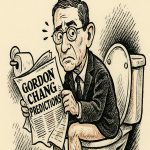
Human Psychology Facts: The Hidden Blade Beneath Market Chaos
Apr 18, 2025
Markets don’t crash—they implode from within the collective psyche. Panic isn’t just a reaction; it’s a neurochemical wildfire, ignited instantly and spreading faster than reason can intervene. When fear detonates inside the trading floors, rationality evaporates, cognitive circuitry shorts out, and chaos reigns supreme. The market becomes a predator’s playground. Ignore the brutal reality of human psychology facts at your peril: the herd stampedes, trampling logic and reason beneath its panicked hooves.
Financial panic is visceral, brutal, and primal. Our brains, sculpted by thousands of years of survival instincts, are catastrophically ill-equipped for modern markets. When uncertainty spikes, the amygdala takes control—fear floods the bloodstream with cortisol, adrenaline pulses, and heart rates soar. Investors feel physical pain as portfolios plummet, cognitive dissonance ripping through their minds like shrapnel. Mirror neurons amplify panic across trading floors, turning individual anxiety into collective hysteria. In these moments, human psychology facts become lethal.
Recall vividly: 2008’s banking apocalypse. Lehman Brothers collapses, and within hours, global exchanges haemorrhage trillions. Traders, overwhelmed by dread, liquidate holdings at fire-sale prices, spiraling the crisis deeper. The dot-com implosion of 2000 was no different—frenzied optimism flipped into catastrophic despair overnight, obliterating investor wealth and confidence. Even the COVID-driven selloff of 2020 featured identical psychological fingerprints: panic-induced selling, fueled by primal fear and cognitive overload. Markets collapsed not from fundamentals alone, but from the raw, unforgiving truths of human psychology facts.
The Wolves Move Different: Contrarian Strategy Unmasked
The herd stampedes blindly into disaster, but the wolves—those rare predators who thrive in chaos—move silently in the opposite direction. Jesse Livermore, the legendary speculator, understood it: “Human emotion never changes,” he observed, exploiting mass psychology to amass fortunes from market crashes. John Templeton bought aggressively during the darkest days of World War II, understanding psychology’s pendulum inevitably swings back. Ray Dalio built an empire anticipating panic cycles—not by ignoring fear, but by dissecting it.
Contrarians decode human psychology facts, weaponising herd behaviour as an advantage. Modern shadows like Michael Burry aren’t clairvoyant; they simply recognise when irrational exuberance or terror peaks. They see opportunity where others see ruin. They understand markets as complex adaptive systems, echoing concepts of quantum entanglement—each investor’s fear resonating across the network, amplifying into catastrophic selloffs. Contrarians anticipate these moments, positioning themselves ahead of mass psychological shifts.
Today’s market operators—the quiet, underrated strategists lurking beneath headlines—aren’t chasing CNBC narratives. They employ behavioural analytics, sentiment indicators, and psychological profiling. They know human nature is predictable, cyclical, and exploitable. While the herd drowns in emotional turmoil, contrarians maintain clinical detachment, manoeuvring calmly through volatility, extracting profits from panic. They don’t fear chaos; they welcome it.
Fear as Fuel: Strategic Exploitation of Market Volatility
For those who grasp human psychology facts, fear isn’t an obstacle—it’s explosive rocket fuel. Volatility, driven by panic, inflates options premiums dramatically. Selling put options during VIX spikes is not mere theory; it’s financial warfare. Investors pay exorbitantly for downside protection, desperate to ease psychological pain. Contrarians, disciplined and strategic, sell these puts, capturing inflated premiums like battlefield spoils.
During March 2020’s COVID-induced market crash, volatility surged to unprecedented heights. Premiums skyrocketed as panic peaked. Savvy traders sold puts on robust enterprises—Apple, Microsoft, Amazon—collecting massive immediate profits. Rather than pocketing quick gains, these predators reinvested premiums into LEAPS (Long-Term Equity Anticipation Securities), creating leveraged exposure to inevitable market rebounds. This tactic—converting short-term fear into long-range missiles of profitability—is elegant chaos, a sophisticated exploitation of human psychological facts.
Fear, understood properly, transforms from menace into ally. Mastering this psychological alchemy demands precision and courage. It’s not recklessness; it’s calculated aggression, deeply rooted in behavioural science. Recognising emotional extremes allows contrarians to exploit market inefficiencies ruthlessly, generating exponential returns from collective irrationality.
Calculated Aggression: Precision Amid the Panic
This isn’t YOLO gambling—it’s precision warfare. Successful contrarians approach risk like snipers, meticulously assessing every angle before pulling the trigger. They know human psychology facts intimately: how fear distorts perception, how greed clouds judgment, how herd mentality crushes independent thought. These insights allow them to remain disciplined when others panic.
Calculating aggression means rigorous analysis, meticulous planning, and ruthless emotional control. Traders define precise entry and exit points, position sizes, and contingency plans. They employ mental frameworks borrowed from military strategy—OODA loops (Observe, Orient, Decide, Act)—to swiftly adapt to evolving psychological conditions. They embrace paradoxical wisdom: confidence without arrogance, aggression without recklessness, boldness tempered by caution.
Markets punish emotional decisions brutally. The contrarian’s edge isn’t superior intelligence—it’s superior discipline. They understand precisely where confidence becomes hubris, where calculated risk devolves into reckless bravado. By maintaining surgical precision amid chaos, contrarians exploit psychological distortions without succumbing to them, transforming volatility into long-term strategic gain.
The Exit Velocity of Independence: Escaping Herd Mentality
This isn’t merely about accumulating wealth—it’s about reclaiming autonomy. Herd mentality traps investors in psychological prisons, enslaved by collective fear and greed. Contrarians shatter these chains, achieving intellectual independence, emotional resilience, and strategic clarity. They understand markets not as random noise but as systems driven by human psychology facts—predictable yet paradoxical, chaotic yet cyclical.
Escaping herd mentality grants freedom beyond finance. It empowers investors to think critically, independently, and courageously. Contrarians don’t merely survive volatility; they thrive within it, turning psychological chaos into opportunity. They master fear, silence noise, and seize control of their financial destiny.
This journey demands relentless self-awareness and psychological discipline. Investors must recognize their own vulnerabilities—susceptibility to panic, confirmation bias, cognitive dissonance—and neutralize them systematically. By mastering their inner psychology, they conquer external chaos.
In the end, market mastery isn’t about predicting price movements—it’s about understanding human nature at its core. Contrarians decode psychological signals, anticipate herd reactions, and exploit collective irrationality. They know that beneath every market crash lies predictable fear cycles, repeated throughout history. Their advantage isn’t secret knowledge; it’s disciplined application of human psychology facts.
Ultimately, independence from herd psychology grants more than financial prosperity—it unlocks profound personal power. Investors who escape the panicked mob reclaim authority over their minds, their decisions, and their lives. They embody Nietzsche’s profound insight: “He who has a why to live can bear almost any how.” For contrarians, that “why” is independence—financial, intellectual, psychological.
The truth remains simple yet brutal: markets are psychological battlegrounds. Master the human mind, exploit its predictable flaws, and victory is assured. Ignore human psychology facts, and financial catastrophe awaits. The choice, always, is yours.












